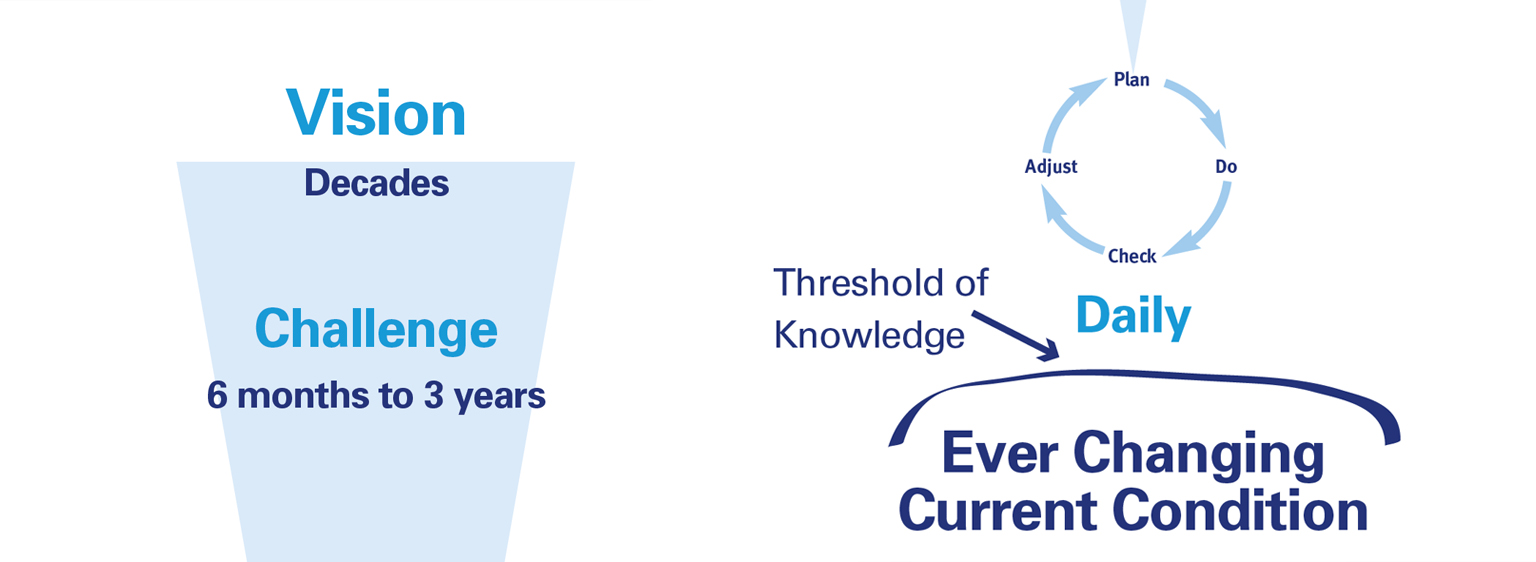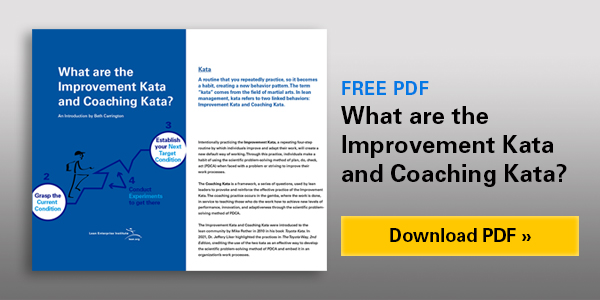Beth Carrington, LEI’s kata program director and instructor, visualizes the Improvement Kata as a funnel to help practitioners understand how it supports a daily plan-do-check-act (PDCA) problem-solving practice.
Find a lightly edited transcript below.
Hello, I’m Beth Carrington. I’m the Improvement Kata and Coaching Kata instructor for Lean Enterprise Institute, and I’m here to explain a bit about the Improvement Kata and Coaching Kata.
The Improvement Kata Funnel
So I often think of the Improvement Kata as being a funnel. At the top of the funnel, you have your vision, that decades-long purpose to your customer, your “why-are-we-here” vision.
Then, a challenge is that one-year goal that answers the question: How far are we going to move toward that strategic imperative or that vision that we have? Then, you go down the funnel a little bit further, and you just focus on one aspect of your process, one area in your plant, one activity in your department, or one group of people in your department.
Then you grasp your Current Condition as it relates to that Challenge — just enough so you can set a Target Condition somewhere between where you are and where you’re going. For example, let’s say the Challenge is a year out, but the Target Condition is just two weeks out. You’d ask: How do I predict my process needs to run two weeks out to get me a little bit closer to my annual Challenge?
The PDCA Cycle
You’re just going to learn how to move closer to the Challenge. You then set a two-week Target Condition bringing you down the funnel further. Then you list your obstacles and choose one, [moving] you down further. Then you experiment to overcome that obstacle, learning how to overcome it or eliminate it.
That’s the PDCA cycle! It’s a small little cycle, but we turn it very quickly in terms of a year-long Challenge, as we practice PDCA on a daily basis.
Learn More
Watch “A Video Primer on Improvement and Coaching Kata,” in which Beth explains the intertwined routines of the Improvement Kata and Coaching Kata practices.
Improvement Kata/Coaching Kata
Develop Scientific Thinking, a Foundation of Lean Management in the 21st Century.







